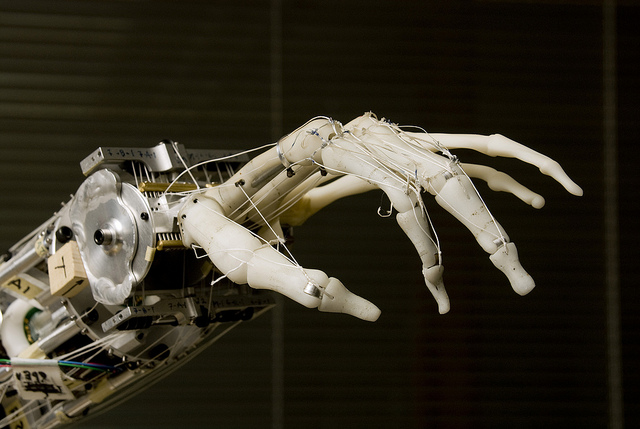deep tech

deep tech – sostantivo numerabile e non numerabile
deep technology – sostantivo non numerabile
In a report published in November, Atomico argued that Europe had acquired real traction in what it termed “deep tech“.
The nature of Deep Techs sees them based around new technology, which means attracting and retaining top talent is key to their development.
Unlike typical business and consumer innovations using existing technology, Deep Tech companies create revolutionary solutions that redefine markets and industry processes.
La tecnologia pervade la nostra vita quotidiana in modi ritenuti impensabili fino a pochi anni fa, portando cambiamenti continui con cui è difficile stare al passo. Persino la frequenza del termine tech stesso è cresciuta in maniera esponenziale: nei primi anni 1990, quando fu compilato il British National Corpus, era scarsamente usato, e lo si trovava perlopiù nella locuzione high tech; oggi, nell’enorme corpus enTenTen13 ci sono 750.000 occorrenze e su Google quasi 2 miliardi, numero destinato a salire rapidamente.
La frequenza con cui si usa tech ha portato alla necessità di distinzioni una volta inutili: l’imprenditrice Swati Chaturvedi, a cui si deve il conio del termine deep tech, è stata spinta dal desiderio di distinguere tra imprese che, per quanto innovative, fanno semplicemente uso di strumenti e tecnologie esistenti e quelle che invece ne sviluppano di nuove, spesso a costo di anni di ricerca e investimenti. Deep tech indica la tecnologia fondata su una scoperta scientifica o un’innovazione ingegneristica significativa. Tra i settori in cui le innovazioni deep tech stanno avendo l’impatto maggiore ci sono la robotica, la medicina, l’intelligenza artificiale, le tecnologie pulite e l’efficienza energetica.
Origini del termine
Come già accennato, deep tech è stato coniato nel 2014 da Swati Chaturvedi, fondatrice e CEO di Propel(x), una piattaforma di investimenti online.
Traduzione di Loredana Riu
deep tech – noun C and U
deep technology – noun U
In a report published in November, Atomico argued that Europe had acquired real traction in what it termed “deep tech“.
The nature of Deep Techs sees them based around new technology, which means attracting and retaining top talent is key to their development.
Unlike typical business and consumer innovations using existing technology, Deep Tech companies create revolutionary solutions that redefine markets and industry processes.
Technology dominates our lives in ways that would have been unthinkable just a few years ago, bringing constant changes that are hard to keep up with. Even the term tech itself has ballooned in frequency: back in the early 1990s when the British National Corpus was compiled it was hardly used at all, and then mainly in the combination high tech; in the huge enTenTen13 corpus there are around three quarters of a million citations; today tech gets nearly 2 billion hits on Google, and that figure can only continue to rise steeply.
The frequency with which the term tech is used has led to finer distinctions being made than were previously deemed necessary. The coiner of the term deep tech, Swati Chaturvedi, felt the need to differentiate between businesses, however innovative, that simply use existing tools and technology, and those that devise new ones, often requiring many years of research and investment. Deep tech refers to technology that is based on significant engineering innovation or scientific advances. Areas where deep tech innovations are having significant impacts include robotics, medicine, artificial intelligence, clean technology and energy efficiency.
Origin
The term deep tech was coined in 2014 by Swati Chaturvedi, CEO and founder of Propel(x), an online investment platform.



